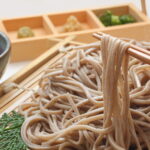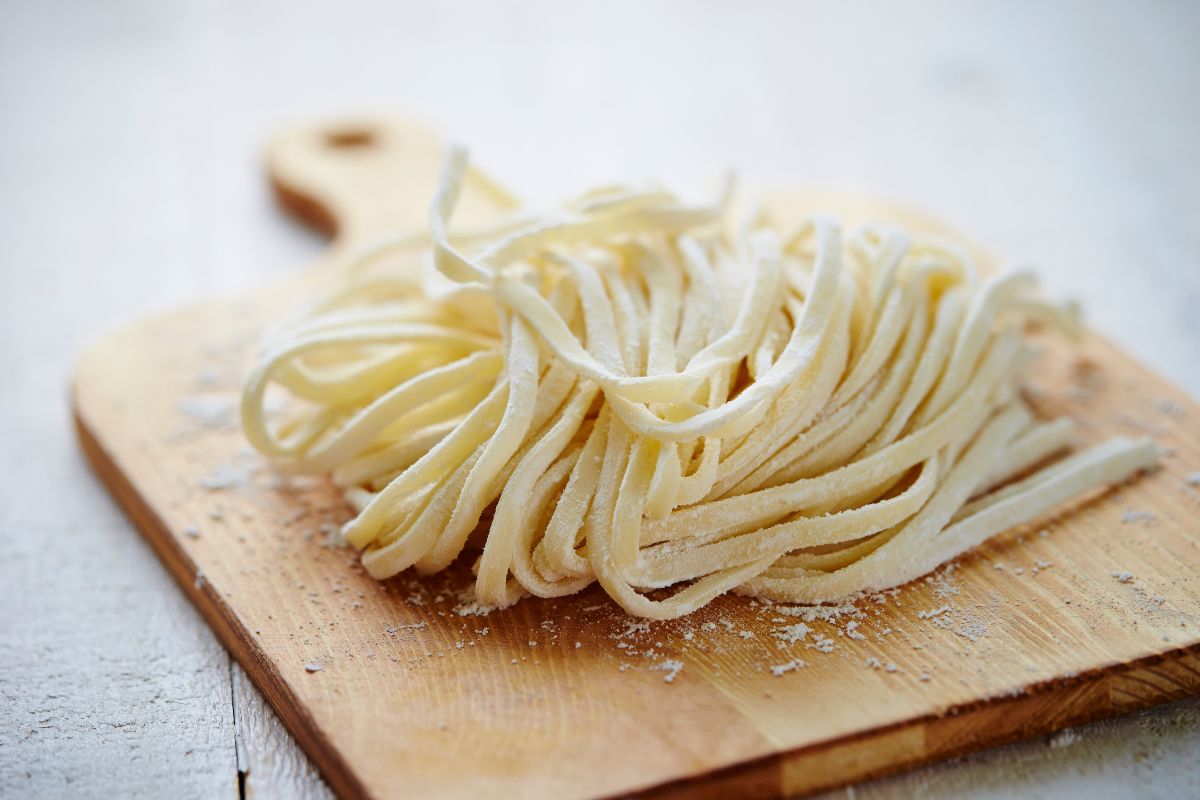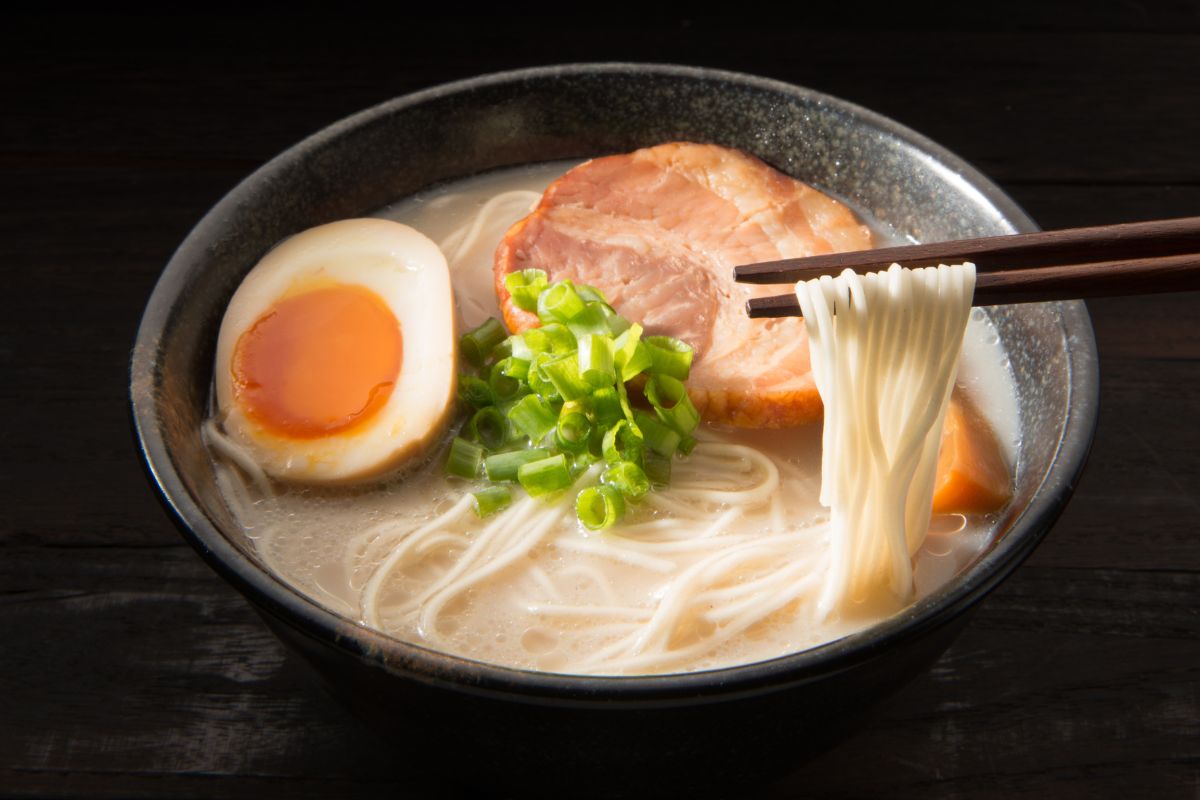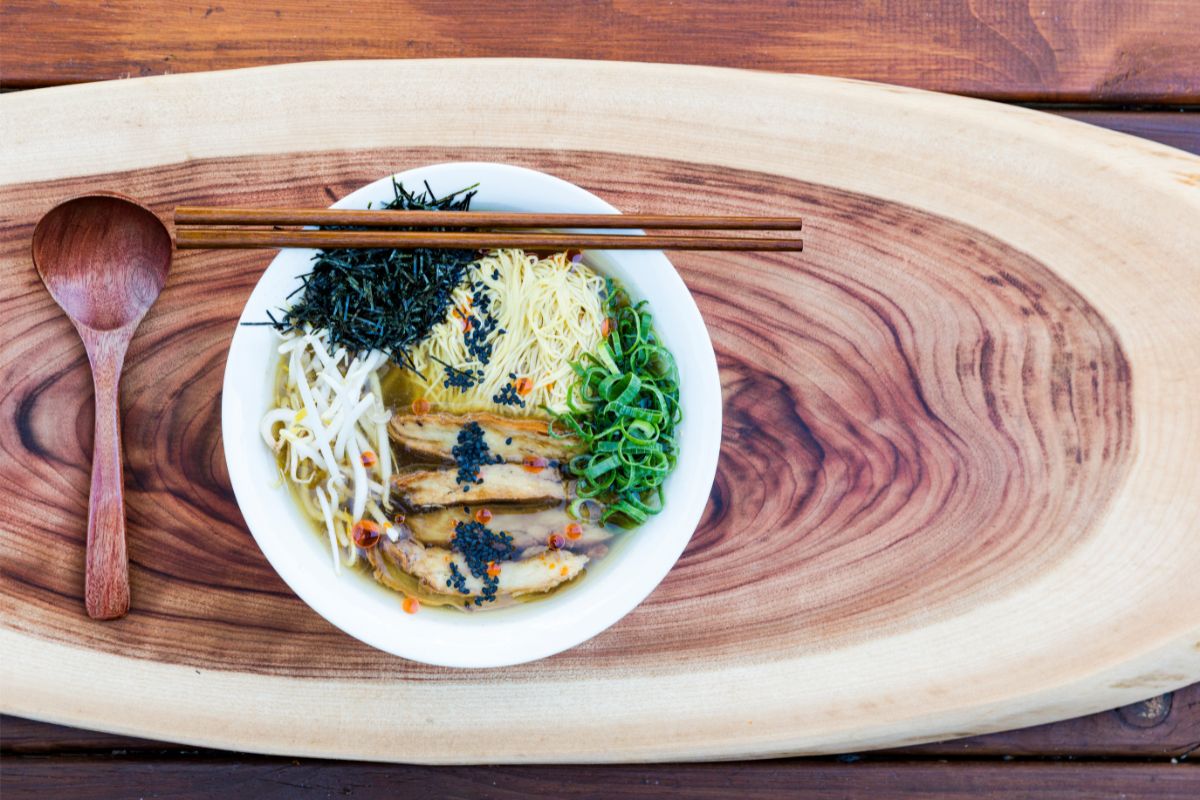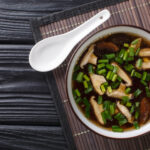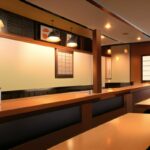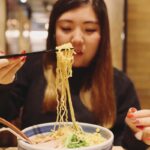Soba is another type of iconic Japanese noodle along with udon and ramen. These types of noodles are known for having a rich and nutty flavor. They also resemble the look of spaghetti, only that they are brown instead.
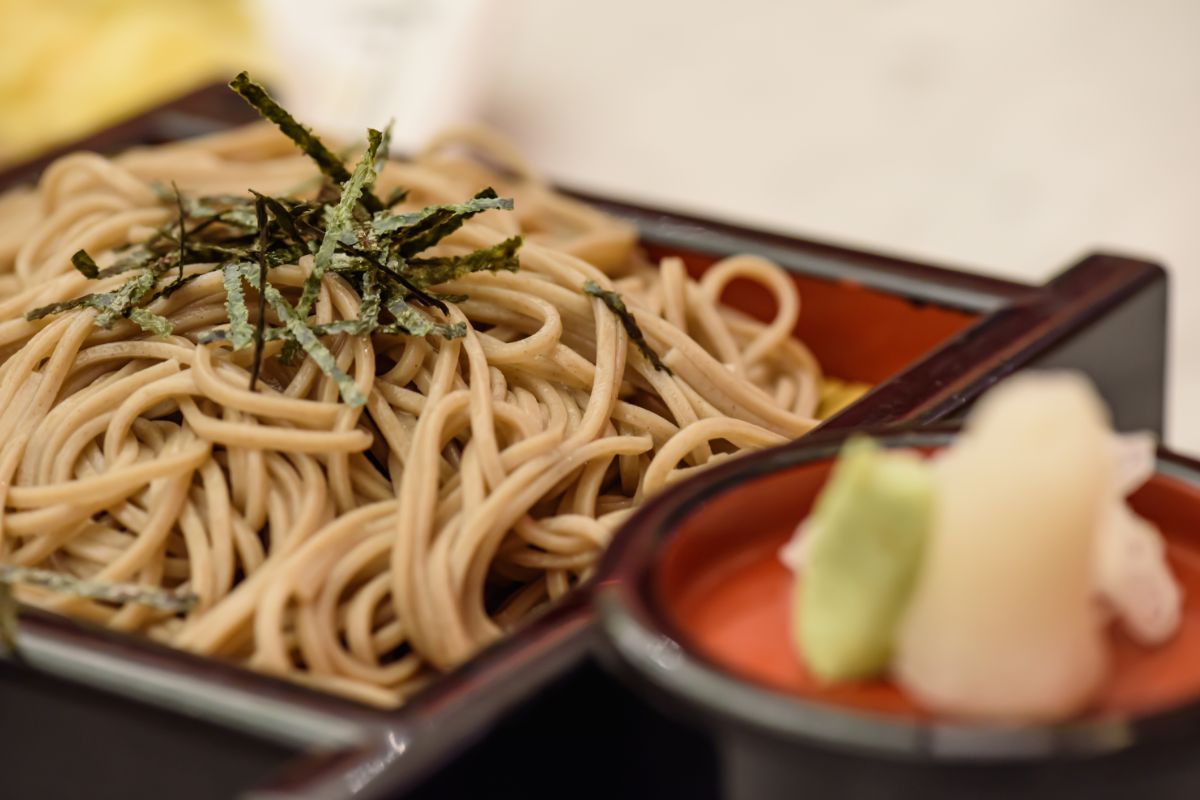
Traditionally made soba noodles are made from buckwheat flour and nothing else. However, these days sometimes wheat flour is added to help the noodles mold and stick together. Because of this, soba noodles are 100 percent vegan.
This means that if you are on a plant-based diet, you can happily eat delicious soba noodle dishes. To find out more about soba noodles, read on!
What Are Soba Noodles?
Soba are made from buckwheat and are a variety of noodles that originate from Japan. However, the mixture of water and buckwheat is from China. They are long and spaghetti-like, and have a light brown color.
You may relate soba with Japan, and that is because these noodles have long been in Japanese culture. Even so, it was the Zen Buddhist monks in China who used to mix water and buckwheat flour to create a ball.
During the 13th century, Shoichi-Kokushi, a Japanese monk, created soba in Kyoto. He took the traditional method and made spaghetti-like noodles. Soba actually used to be quite a spiritual meal – and still are to a degree.
They were eaten by monks before going on a ten day fast. While traditionally all it takes is water and buckwheat flour to make soba, wheat flour is sometimes added to create a better texture.
What Is Buckwheat?
Buckwheat is not a type of wheat, despite its name. In fact, it isn’t actually a grain either. Instead, it is a seed. It is also considered to be a superfood due to the many health benefits it potentially has.
However, what it does include is high amounts of fiber, energy, and lots of protein. It is also used to make soba noodles. The buckwheat seed comes from harvesting a plant that flowers.
This particular plant, the Fagopyrum esculentum, is a member of the rhubarb family. However, it is also related to knotweed!
Are Soba Noodles Gluten-Free Too?
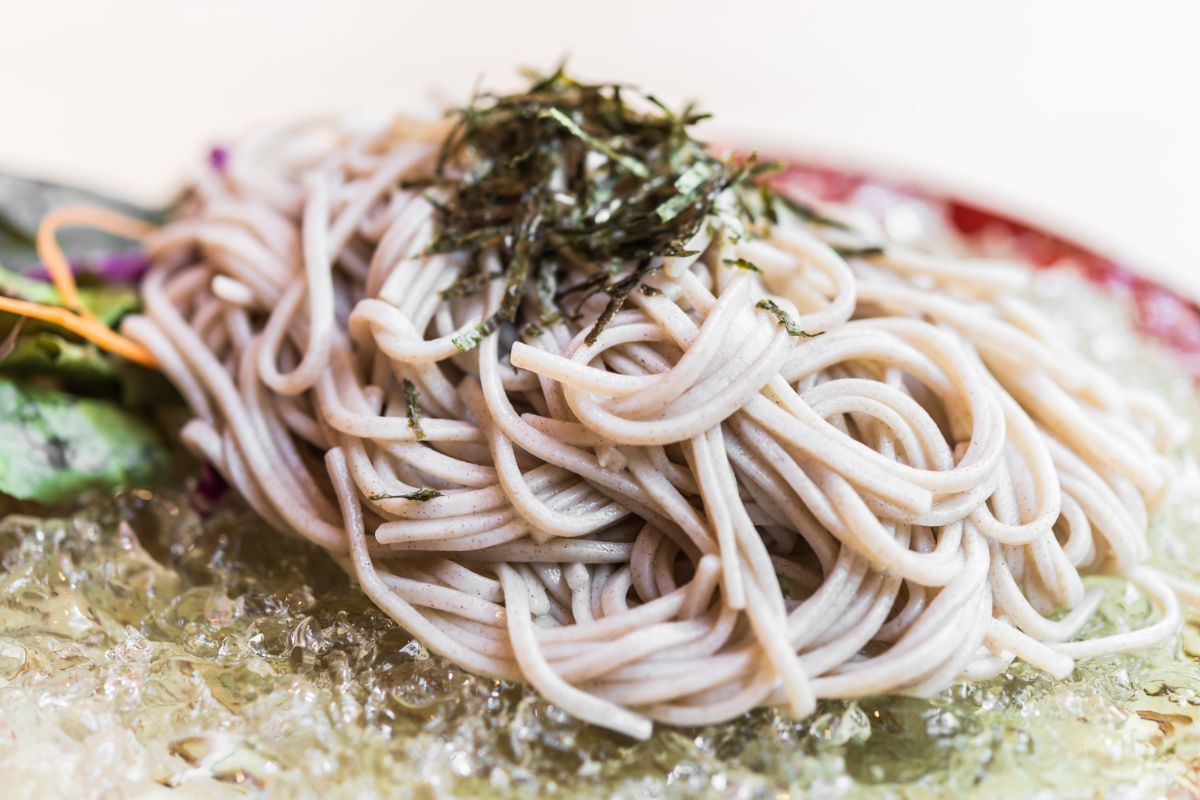
Due to the presence of buckwheat, soba noodles are gluten-free. Despite buckwheat having the word ‘wheat’ associated with it, it isn’t actually a form of wheat. This means that it is safe to eat if you need to avoid gluten.
To make sure that wheat has not been added, always go for traditional soba noodles. These are often made from buckwheat and absolutely nothing else.
However, if you are eating soba noodles in a restaurant, you may want to ask whether they contain wheat or not.
Are Soba Noodle Dishes Always Vegan?
If you go to an Asian restaurant and want to order soba noodles, as a vegan you may want to be careful. While soba noodles are fine to eat, it is what is put with the soba noodles which might not be vegan.
For example, the broth. More often than not, a soba dish will include tsuyu. This is made using sake, mirin, soy sauce, and dashi. Sounds harmless enough, right?
Well, the majority of the time, dashi is made using anchovy or bonito flakes, and seaweed. The reason for this is because dashi has a fish-like flavor. At home you can make your own fish-free version of dashi.
However, this may not be the same when visiting a restaurant. When at home you can recreate the umami flavor with shiitake mushrooms, daikon, and even carrot peelings.
Are There Health Benefits To Eating Soba Noodles?
According to VeryWellFit, there are a number of health benefits to eating soba noodles. While there are no vitamins associated with eating soba, there are minerals.
For example, by eating a two ounce worth dish, you will take in around nine percent of your daily iron intake. Also just over three percent of your daily intake of calcium. This amount of soba will also amount to only 99 calories, making it a light meal to eat.
Soba noodles also contain lots of fiber and protein which have their benefits when it comes to the body. For example, fiber can help to keep you regular, while protein is great for the muscles. Not only that, soba noodles may help when losing weight.
Protein can help to fill you up for much longer. This means you will snack less, without having to change your diet drastically!
How Are Soba Noodles Eaten?
It all depends on what the season is, but soba noodles can be eaten either hot or cold. When you buy them packaged at a grocery store, more often than not they are dry. They will need water to help loosen them up, ready to eat.
Soba noodles go very nicely alongside salads, as well as delicious broths and sauces. This makes soba a very versatile noodle to eat.
A lot of the time, both soba and ramen are often seen as a similar thing because they are long and noodle-like, and served in tsuyu, a Japanese soup. However, ramen is also seen as a fast food, whereas soba isn’t always considered this.
Tips On Cooking Soba Noodles?
Soba noodles are easy to cook, however, there are a few things you should think about. For example, once you have finished boiling the soba noodles in hot water, rinse them under cold water in a colander.
Doing this ensures you remove the extra starch, as well as stop them cooking in the heat of the water. This will make sure that they stay light, rather than sticky and gum-like. You will then want to shake away the excess water. Soba noodles are best served as dry as possible.
Final Thoughts
Soba noodles are made from buckwheat and water, meaning they are completely vegan. However, as a vegan, you should make sure what they are served with is also vegan. While the noodles themselves are safe to eat, the tsuyu soup might not be!
- 16 Best Websites To Watch Japanese Movies With English Subtitles - May 11, 2023
- Is ZIPAIR The Best Airline For Traveling To Japan? - May 11, 2023
- Ryu Murakami Vs Haruki Murakami – Which One Should You Read? - May 11, 2023

